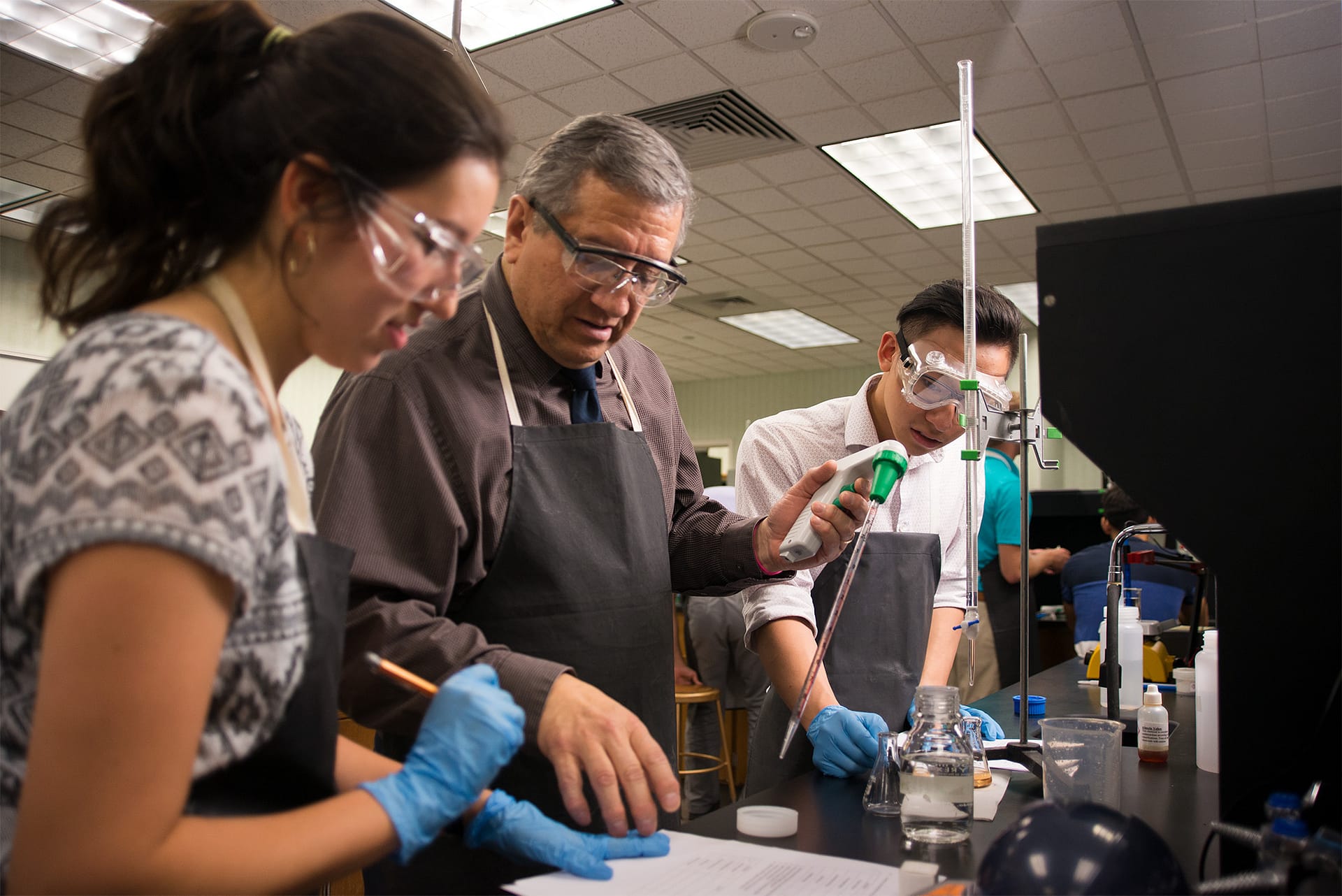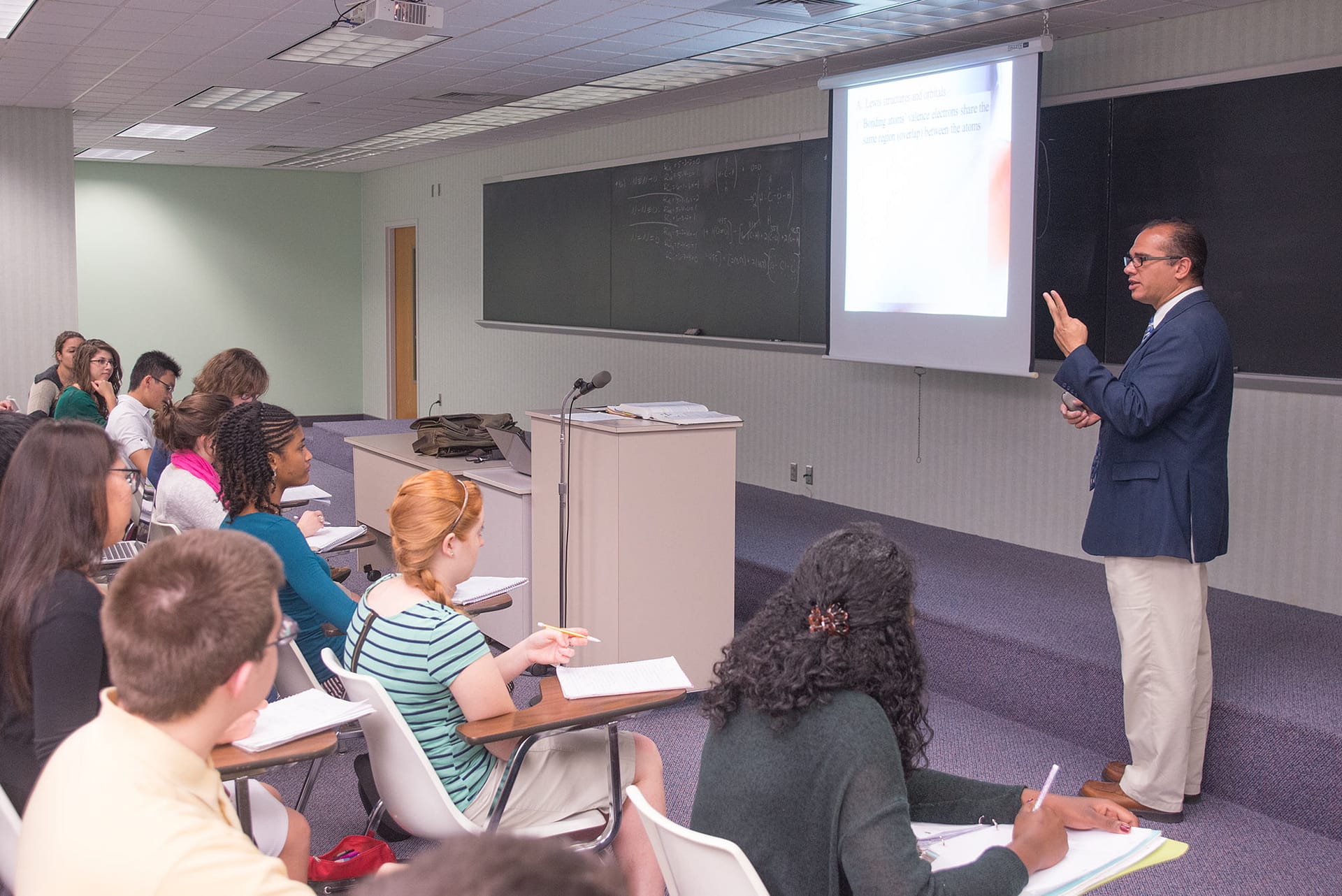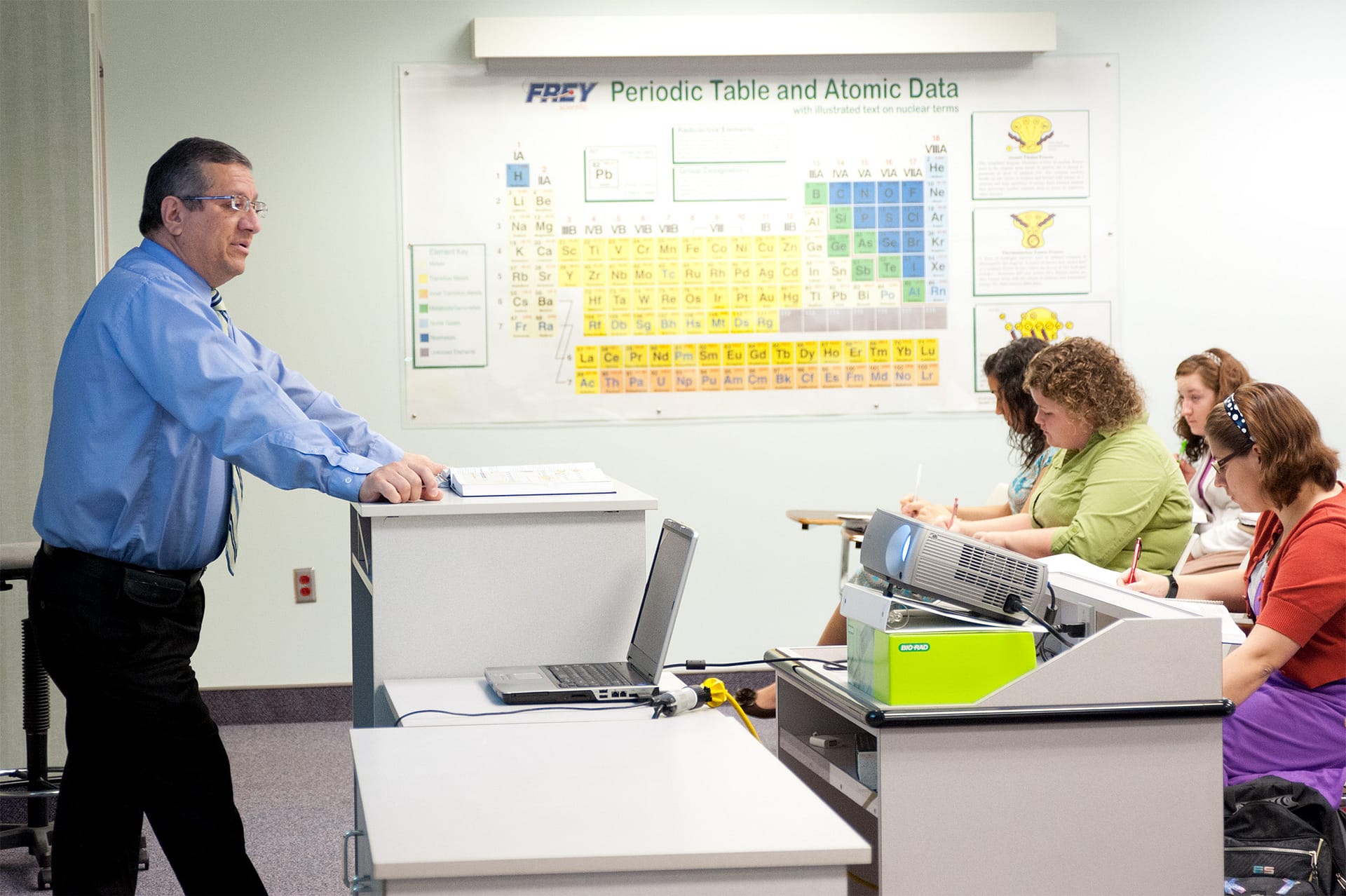Tucked away in a lab on third floor of the MacKenzie Building, chemistry students analyze the reaction of a basic solution with an acid, noting the visual changes. Andrew Foss (NH), a senior who plans to work in polymer science, charts the results. “I like chemistry because it’s involved in every science, and it sets the basis for every scientific field except physics. It also pays pretty well, too, because the demand for chemists is so great,” he explains. “Most manufacturing plants will have a chemistry lab in them because they use so many chemicals.”
Charles Lail III (IN), a sophomore in the chemistry program at Pensacola Christian College, said, “It was so neat to be able to think through something, predict the outcome, and then see my prediction proved true. It was a link between classroom theory and the actual real world.”
Though little known to most people, chemistry is a field that plays an important role in nearly every aspect of life. From the medicine people take to the makeup they wear to the coffee they drink, at some level, chemistry is involved in the process.

“The whole universe is made up of matter and energy, and chemistry is the study of the interactions of matter and energy,” said Dr. Shane Smith, chair of the Natural Sciences Department. “We study chemistry to be wise stewards of God’s creation and to learn ways to help mankind with medicines, inventions, or improved materials.”

Senior Vathna Kove (Cambodia) said that studying chemistry “increased my faith more. We are seeing how God created His world.”
In classes, students study organic, inorganic, biological, analytical, and physical chemistry. In labs, they apply the concepts they’ve learned.

Graduate Rachel Demorell (Chemistry ’07), an analytical chemist at Nu Skin Enterprises, uses the skills she acquired at PCC on a daily basis. “I typically prepare samples and run tests using various analytical instrumentation to ensure that the quality of our products meets the label claims,” she said. “I spend most of my time in the laboratory, and at PCC, labs allowed me to get hands-on experience by teaching me to follow methods and techniques.”
Science faculty Dr. Sean Vinaja said, “When students understand when and why chemical processes occur in a beaker, they can also understand why the same chemical processes occur in a petri dish or in a living organism. My primary goal is to take students from knowing their memorized facts to actually applying the facts to solving a problem.”
The goal is not only a solid grasp of chemistry, but also a biblical worldview. Students gain a perspective of hope, even as they study a fallen world and seek to improve conditions. “Though under sin’s curse, the universe still displays a marvelous plan,” Dr. Vinaja stated. “According to Genesis, God made everything for man; and if God made the universe according to a plan, then He made us with a plan, too.”
Anastasia Rairigh, M.D. (Chemistry; Pre-Medicine ’04) has never forgotten the day her chemistry teacher prayed before class: Oh God, help us to understand our reasonable service! That is, total dedication to the task at hand! She recalls, “I wrote down his prayer immediately after and have carried it with me for the past almost 15 years.”
Anastasia and her classmates were studying chemistry, learning the discipline of critical thinking along with problem-solving skills that would prepare them for a variety of fields after college.
Some would use their knowledge to conduct scientific research. Others would go on to careers in forensic science, while some would pass on their love for chemistry to high school and college students. Anastasia would become a medical doctor and director of a clinic in rural Appalachia. She believes her studies at PCC prepared her for serving an often-neglected community. “The teachers’ passion for excellence and dedication to rigorous scientific inquiry give impetus to my work to understand the forces that give rural Appalachia some of the worst life expectancy in the United States,” she said.
For those interested in studying chemistry, Dr. Vinaja advises, “Know your calling, know your purpose, and know your periodic table.”










